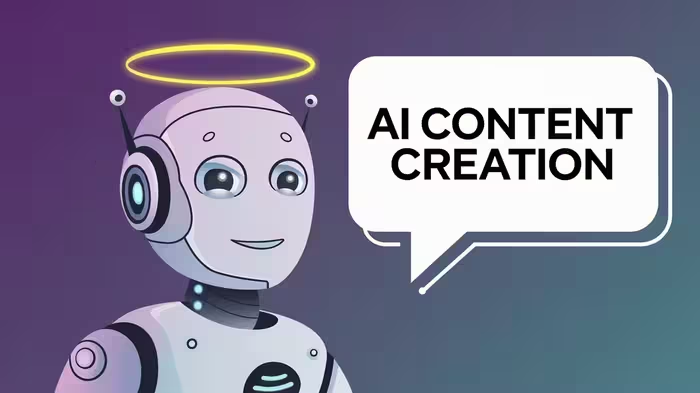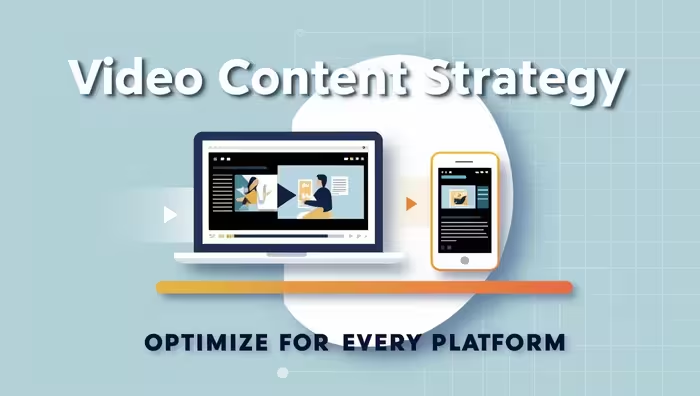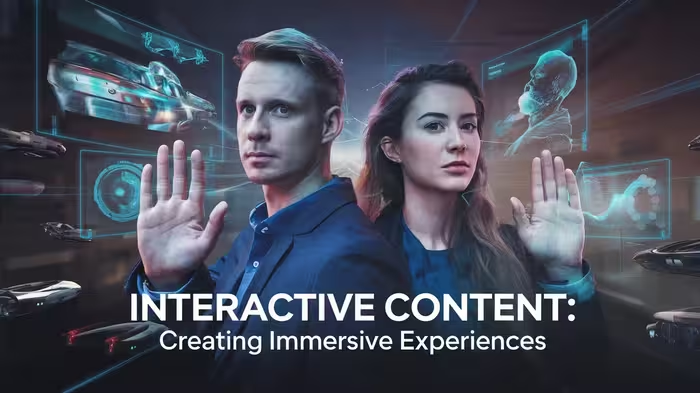In a world where content is king, artificial intelligence has stormed the castle, promising to revolutionize how we create, distribute, and consume information. But as we stand at the crossroads of human creativity and machine efficiency, a crucial question emerges: How do we harness the power of AI in content creation without losing the essence of what makes content truly resonate – its authenticity? Let’s embark on a journey through the landscape of AI-powered content creation, exploring the delicate balance between automation and the human touch that gives words their soul.
Understanding AI in Content Creation
The Rise of AI Writing Tools
Picture this: You’re staring at a blank page, the cursor blinking mockingly as writer’s block sets in. Now, imagine having a tireless assistant who can effortlessly generate ideas, draft articles, and even mimic your writing style. That’s the promise of AI writing tools, and they’re not just a figment of science fiction anymore. From GPT-3 to DALL-E, AI has leaped from the pages of speculative novels into our everyday content creation workflow.
How AI Generates Content
But how does this digital wordsmith work its magic? At its core, AI content generation is like having a hyper-intelligent parrot that’s read the entire internet. It uses complex algorithms and machine learning models trained on vast amounts of text data to predict and generate human-like language. Think of it as a chef who’s memorized millions of recipes and can whip up a new dish based on the ingredients you provide – in this case, your prompts and guidelines.
The Promise of AI-Powered Creativity
The allure of AI in content creation is undeniable. It’s like having a creative genie in a bottle, ready to grant your content wishes at a moment’s notice. But as with any powerful tool, the key lies in how we wield it. Can AI truly spark creativity, or is it simply remixing existing ideas in new ways? The answer, as we’ll explore, lies somewhere in the middle.
The Benefits of AI Content Creation
Increased Efficiency and Productivity
One of the most significant advantages of AI in content creation is its ability to turbocharge productivity. Imagine being able to produce a week’s worth of content in a single day. AI doesn’t need coffee breaks, doesn’t suffer from writer’s block, and can work around the clock. It’s like having an army of tireless writers at your fingertips, ready to churn out content at a moment’s notice.
Scalability of Content Production
In the digital age, the demand for content seems insatiable. Websites, social media, email campaigns – the list goes on. AI offers the ability to scale content production like never before. It’s akin to having a content factory that can instantly adapt to produce anything from blog posts to product descriptions, all tailored to your specific needs.
Consistency in Tone and Style
Brand Voice Preservation
Maintaining a consistent brand voice across all content can be challenging, especially with multiple writers. AI acts like a chameleon, able to adapt to and maintain a specific tone and style consistently. It’s like having a brand guardian that ensures every piece of content aligns perfectly with your voice, whether it’s professional, casual, or somewhere in between.
Multilingual Content Generation
In our globalized world, the ability to produce content in multiple languages is invaluable. AI doesn’t just translate; it can generate native-sounding content in various languages. It’s like having a polyglot on your team, capable of addressing diverse audiences with cultural nuance and linguistic accuracy.
The Challenges of AI-Generated Content
Lack of Human Touch and Empathy
While AI excels in many areas, it still struggles with the nuances of human emotion and experience. AI-generated content can sometimes feel sterile or lacking in empathy. It’s like reading a beautifully written letter that somehow misses the warmth of a human touch – the words are there, but the soul might be missing.
Potential for Inaccuracies and Misinformation
AI models are only as good as the data they’re trained on, and they don’t have real-world understanding or the ability to fact-check themselves. This can lead to the generation of content that, while coherent, may be factually incorrect or outdated. It’s like having a very confident but occasionally misinformed friend – you need to double-check their facts.
Ethical Concerns and Transparency Issues
The use of AI in content creation raises important ethical questions. Should AI-generated content be disclosed as such? How do we handle issues of copyright and originality? It’s a bit like navigating a new frontier without a complete map – we’re still figuring out the rules and best practices as we go along.
Striking the Balance: Human and AI Collaboration
The Role of Human Editors
Human oversight remains crucial in the AI content creation process. Editors play a vital role in refining AI-generated content, adding nuance, checking facts, and ensuring the final product meets quality standards. Think of it as a dance between human and machine, with each partner bringing their unique strengths to create something truly exceptional.
AI as a Creative Assistant
Rather than viewing AI as a replacement for human creativity, consider it a powerful assistant. AI can help overcome writer’s block, suggest ideas, and even draft initial versions of content. It’s like having a brainstorming partner who never runs out of ideas – you still guide the creative process, but with an inexhaustible source of inspiration at your side.
Customizing AI Outputs
The key to effective AI content creation lies in fine-tuning and customization. By training AI models on your specific content and style guides, you can create outputs that are more aligned with your brand and objectives. It’s like teaching a new employee your company’s unique way of doing things – with time and guidance, the results become more refined and on-brand.
Maintaining Authenticity in the Age of AI
Infusing Personal Experiences
Authenticity often comes from sharing personal experiences and insights that only a human can provide. Weaving these elements into AI-generated content can breathe life into otherwise mechanical text. It’s like adding your own secret ingredient to a pre-made meal – it transforms the dish into something uniquely yours.
Leveraging Subject Matter Expertise
While AI has broad knowledge, it lacks deep expertise in specific fields. Subject matter experts can add invaluable insights, current industry knowledge, and nuanced understanding to AI-generated content. This collaboration is like having a generalist and a specialist working together – combining broad strokes with fine details to create a masterpiece.
Embracing Unique Perspectives
One of the most valuable aspects of human-created content is the unique perspective each individual brings. Encourage writers to inject their personality, opinions, and unique viewpoints into AI-assisted content. It’s like adding spices to a base recipe – it’s what turns a good dish into an unforgettable culinary experience.
SEO Considerations for AI-Generated Content
Google’s Stance on AI Content
As AI content becomes more prevalent, search engines like Google are adapting their algorithms to identify and evaluate it. Understanding Google’s perspective on AI-generated content is crucial for SEO success. It’s a bit like learning the rules of a new game – knowing what’s allowed and what’s penalized can make all the difference in your content strategy.
Optimizing AI Content for Search Engines
While AI can help generate SEO-friendly content, it’s important to refine and optimize it for best results. This includes adjusting keywords, improving readability, and ensuring the content provides genuine value to readers. Think of it as polishing a rough diamond – the AI gives you the raw material, but your expertise makes it shine.
Avoiding AI Content Detection Penalties
As search engines become more adept at identifying AI-generated content, it’s crucial to ensure your content doesn’t trigger penalties. This often means carefully editing and personalizing AI outputs. It’s like putting your own signature on a painting – adding those final touches that make the piece uniquely yours and undetectable as AI-generated.
The Future of AI in Content Creation
Emerging Technologies and Trends
The field of AI in content creation is evolving rapidly. From more advanced language models to AI that can generate images and videos to accompany text, the possibilities seem endless. Staying abreast of these developments is like surfing a wave – exhilarating, challenging, and essential for staying ahead in the digital content space.
Predictions for Human-AI Content Collaboration
As AI technology advances, the relationship between human creators and AI tools will likely become more symbiotic. We might see AI becoming more intuitive, better at understanding context, and even capable of emotional intelligence. Imagine having a co-author who not only writes well but also understands and complements your creative process perfectly.
Preparing for an AI-Augmented Content Landscape
To thrive in the future of content creation, adaptability is key. Developing skills that complement AI, such as critical thinking, creativity, and emotional intelligence, will be crucial. It’s like evolving alongside a new species – learning to coexist, collaborate, and create something greater than either could achieve alone.
Conclusion
As we navigate the exciting yet challenging world of AI content creation, the key lies in finding the sweet spot between automation and authenticity. AI is a powerful tool that can dramatically enhance our content creation capabilities, but it’s not a replacement for human creativity, empathy, and expertise. By leveraging the strengths of both AI and human input, we can create content that is not only efficient and scalable but also genuinely resonates with our audience.
The future of content creation is not about choosing between AI and human creativity – it’s about harmonizing the two. As we move forward, let’s embrace AI as a collaborator in our creative process, a tool that amplifies our abilities rather than replaces them. By doing so, we can unlock new realms of creativity, efficiency, and engagement in our content, all while maintaining the authentic human touch that truly connects with readers.
In this brave new world of AI-augmented content creation, the possibilities are limitless. The question is no longer whether we should use AI in content creation, but how we can use it most effectively to enhance our human creativity and connect more deeply with our audience. Are you ready to embark on this exciting journey of human-AI collaboration in content creation?
Frequently Asked Questions
- Can AI completely replace human content creators?
While AI can significantly augment content creation, it’s unlikely to completely replace humans. The nuanced understanding, emotional intelligence, and creativity that humans bring to content creation remain invaluable and irreplaceable. - How can I ensure my AI-generated content is unique and not duplicated elsewhere?
Customize your AI prompts, edit the outputs thoroughly, and infuse your unique insights and experiences. Think of AI as a starting point, not the final product. Always run the content through plagiarism checkers and make necessary adjustments. - Will using AI for content creation negatively impact my website’s SEO?
Not necessarily, if done correctly. High-quality, valuable content is still the key, regardless of how it’s produced. Focus on refining AI outputs, adding unique insights, and ensuring the content meets user needs. Google’s primary concern is content quality and user experience, not the tool used to create it. - How do I disclose the use of AI in my content creation process?
While there’s no universal standard yet, transparency is generally appreciated. You might include a note in your content or on your website explaining your use of AI tools. The key is to be honest without undermining the value of your content. - What skills should content creators focus on developing in the age of AI?
Focus on skills that complement AI, such as critical thinking, emotional intelligence, subject matter expertise, and creative ideation. Additionally, developing skills in AI prompt engineering and output refinement will be increasingly valuable.


